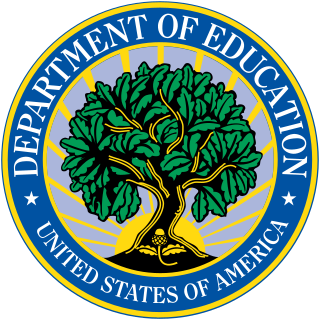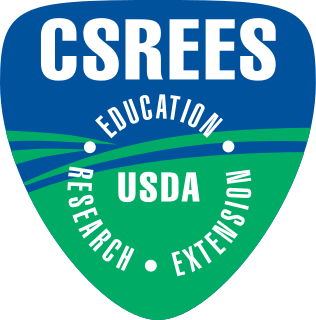The Job Training Partnership Act of 1982 was a United States federal law passed October 13, 1982, by Congress with regulations promulgated by the United States Department of Labor during the Ronald Reagan administration. The law was the successor to the previous federal job training legislation, the Comprehensive Employment and Training Act (CETA). It was repealed by the Workforce Investment Act of 1998 during the administration of President Bill Clinton.
The Workforce Investment Act of 1998 was a United States federal law that was repealed and replaced by the 2014 Workforce Innovation and Opportunity Act.
The Bureau of Primary Health Care (BPHC) is a part of the Health Resources and Services Administration (HRSA), of the United States Department of Health and Human Services. HRSA helps fund, staff and support a national network of health clinics for people who otherwise would have little or no access to care. BPHC funds health centers in underserved communities, providing access to high quality, family oriented, comprehensive primary and preventive health care for people who are low-income, uninsured or face other obstacles to getting health care.
The Administration for Children and Families (ACF) is a division of the United States Department of Health and Human Services (HHS). It is headed by the Assistant Secretary of Health and Human Services for Children and Families. It has a $49 billion budget for 60 programs that target children, youth and families. These programs include assistance with welfare, child support enforcement, adoption assistance, foster care, child care, and child abuse.

The Employment and Training Administration (ETA) is part of the U.S. Department of Labor. Its mission is to provide training, employment, labor market information, and income maintenance services. ETA administers federal government job training and worker dislocation programs, federal grants to states for public employment service programs, and unemployment insurance benefits. These services are primarily provided through state and local workforce development systems.
The Post Secondary Transition For High School Students with Disabilities refers to the ordinance that every public school district in the United States must provide all students with disabilities ages 3 through 21 with an individualized and free appropriate public education in the least restrictive environment. President Gerald R. Ford established this right when in 1975 he signed Public Law 94-142, the Education of All Handicapped Children Act (EAHCA). Parents of children with disabilities and other advocates hailed EAHCA as the "education civil rights act" for their children.

A farmworker or agricultural worker is someone employed for labor in agriculture. In labor law, the term "farmworker" is sometimes used more narrowly, applying only to a hired worker involved in agricultural production, including harvesting, but not to a worker in other on-farm jobs, such as picking fruit.

Texas RioGrande Legal Aid formerly Texas Rural Legal Aid (TRLA) is a nonprofit agency that specializes in providing free civil legal services to the poor in a 68-county service area. It also operates a migrant farmworker legal assistance program in six southern states and a public defender program in southern rural counties of Texas. Established in 1970, TRLA is the largest legal aid provider in Texas and the second largest in the United States.
The California Postsecondary Education Commission (CPEC) was the higher education planning and coordinating agency of the government of the U.S. state of California. It closed in 2011.
The Kentucky Council on Postsecondary Education coordinates change and improvement in Kentucky's postsecondary education system as directed by the Kentucky Postsecondary Education Improvement Act of 1997. The Council is a statewide coordinating agency with sixteen members: fourteen citizens, one faculty member and one student appointed by the Governor; the Commissioner of Education is an ex officio member.

The Harvest of Hope Foundation is a 501(c)(3) non-profit foundation which provides emergency and educational financial relief to migrant farmworkers and their families. Federal, state and other public aid to migrant farmworkers has become increasingly restrictive, and in many cases, not available at all. The goal of the Harvest of Hope Foundation is to fill in the gaps in service to this most hard-working and deserving, yet needy group of laborers.
The Office of Elementary and Secondary Education is a division of the United States Department of Education. Its purpose is to promote academic excellence, enhance educational opportunities and equity for all of America's children and families, and to improve the quality of teaching and learning by providing leadership, technical assistance, and financial things.

The Federal TRIO Programs are federal outreach and student services programs in the United States designed to identify and provide services for individuals from disadvantaged backgrounds. They are administered, funded, and implemented by the United States Department of Education. TRIO includes eight programs targeted to serve and assist low-income individuals, first-generation college students, and individuals with disabilities to progress through the academic pipeline from middle school to post-baccalaureate programs. TRIO also includes a training program for directors and staff of TRIO projects. Their existence is owed to the passing of the Higher Education Act of 1965.
The Missouri Department of Social Services (DSS) is a state agency of Missouri. It has its headquarters in the Broadway State Office Building in Jefferson City. The department operates the state's social services.

Originally created as the Bureau of the Education of the Handicapped, the Office of Special Education Programs (OSEP) is part of the U.S. Department of Education. OSEP provides leadership and support for professionals working with children with disabilities. Another critical role of OSEP is to protect the educational rights of children with disabilities from age three through twenty-one. OSEP is supervised by the Office of the Deputy Secretary of Education through the Office of Special Education and Rehabilitative Services (OSERS).

The Cooperative State Research, Education, and Extension Service (CSREES) was an extension agency within the U.S. Department of Agriculture (USDA), part of the executive branch of the federal government. The 1994 Department Reorganization Act, passed by Congress, created CSREES by combining the former Cooperative State Research Service and the Extension Service into a single agency.

Children of migrant workers struggle to achieve the same level of educational success as their peers. Relocation causes discontinuity in education, which causes migrant students to progress slowly through school and drop out at high rates. Additionally, relocation has negative social consequences on students: isolation from peers due to cultural differences and language barriers. Migrant children, defined as those who relocate because of involvement with agriculture-related industries or other seasonal work, are also at a disadvantage because the majority live in extreme poverty and must work with their parents to support their families. These barriers to equal educational attainment for children of migrant workers are present in countries all over the world. Although the inequality in education remains pronounced, government policies, non-governmental organizations, non-profits, and social movements are working to reverse its effects.
Lupe Martinez is an American labor leader and civil rights activist who has spent an entire career advocating for the living and working conditions of migrant and seasonal farm workers.

The Family and Youth Services Bureau (FYSB) is a division of the US Executive Branch under the Administration for Children and Families and the Department of Health and Human Services. The FYSB's primary purpose is to support programs for at-risk youth and their families.
Howard Center is a Burlington, Vermont-based nonprofit organization that offers professional crisis and counseling services to children and adults; supportive services to individuals with autism and developmental disabilities who need help with education, employment, and life maintenance skills; counseling and medical services for those struggling with substance use disorders; and interventions and supports for adults with serious and persistent mental health challenges in Chittenden County, Vermont's most populous county. Howard Center collaborates with many community partners and is a funded agency of the United Way of Northwest Vermont.









